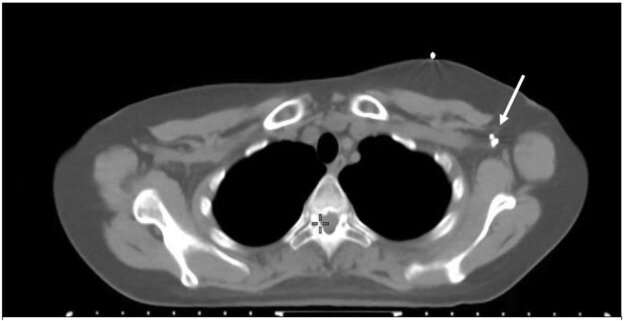Avoid unnecessary removal of lymph nodes in breast cancer, recommends new study


Researchers from Heidelberg University Hospital and the University of Lucerne as well as international scientists, patient representatives and European cancer societies have pooled scientific data and their expert knowledge on the surgical management of lymph nodes in breast cancer. Recommendations aim to avoid unnecessary removal of lymph nodes and spare patients chronic lymphedema. The findings have been published in the open access journal eClinicalMedicine.
Preoperative chemotherapy for breast cancer can significantly shrink tumor size and metastatic lymph nodes by the time surgery is performed. As a result, breast surgery has the potential to avoid complete excision of axillary lymph nodes and reduce the risk for distressing side effects such as arm lymphedema.
A multidisciplinary consortium of European cancer societies, international medical institutions with Heidelberg participation, and patient representatives, addressed the challenges of clinical axillary lymph node management in early breast cancer. Leading experts voted on all major issues and formulated recommendations for clinical application.
A total of five work packages were developed, following the patient’s journey from diagnosis to local axillary therapy and addressing specific clinical scenarios.
“The benefits of preoperative chemotherapy in breast cancer are not always sufficiently realized. Published data describe that mastectomies and complete lymph node removal are still performed too frequently. Reduced surgical removal of lymph nodes is only partially implemented even with good preoperative results,” reports Professor Dr. Peter Dubsky, head of the Breast Center at the Hirslanden Klinik St. Anna in Lucerne, titular professor at the University of Lucerne and lead investigator of the consortium.
“Removing fewer lymph nodes in the axilla reduces the risk of harming lymphatic drainage from the arm,” he said. To complement existing guidelines, the international working group has therefore created a new medical concept with practical recommendations to prevent unnecessary surgical removal of lymph nodes that can be quickly integrated into clinical practice,” said Dr. André Pfob of Heidelberg University Hospital (UKHD) and joint first author of the publication with Dr. Orit Kaidar-Person of Tel Aviv, Israel.
At a conference in Lucerne in September 2022, it was possible to achieve unity in a previously controversial debate and to develop a far-reaching practical guide. Participating subject matter experts voted on 72 statements and reached consensus (agreement of 75% or more) in 52.8%, a majority (51% to 74% agreement) in 43.1% and no decision in 4.2%.
“According to the voting results, imaging and standardized pathology of the lymph nodes should be a prerequisite for planning local and systemic therapy in breast cancer patients. Removal of all axillary lymph nodes could be replaced by targeted removal of a few lymph nodes, such as the sentinel lymph nodes, in the majority of scenarios discussed in the consortium,” Dr. Pfob said, summarizing the results.
“The outcome of lymph node surgery has complex implications for subsequent radiation and chemotherapy or hormone therapy. These should be tailored to the individual patient.” To monitor the success of the recommendations for individual women, the risk of cancer recurrence and side effects are recorded and evaluated.
The summary of recommendations is called “The Lucerne Toolbox.” The project was sponsored by the Hirslanden Klinik St. Anna in Lucerne. The first edition of The Lucerne Toolbox was published as early as 2021, which addressed the issue of mastectomy.
More information:
Orit Kaidar-Person et al, The Lucerne Toolbox 2 to optimise axillary management for early breast cancer: a multidisciplinary expert consensus, eClinicalMedicine (2023). DOI: 10.1016/j.eclinm.2023.102085
Journal information:
EClinicalMedicine
Source: Read Full Article